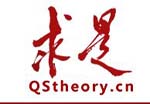【美國總統大選正在如火如荼地進行,地產大亨特朗普的崛起不但震驚了美國朝野,也給中國精英提出了難題。如何向公眾解釋特朗普現象?4月19日,美國權威政論雜志《外交》(Foreign Affairs)刊登春秋發展戰略研究院研究員李世默文章“Watching American Democracy in China”,剖析了特朗普現象在太平洋兩岸造成的沖擊波。作者授權觀察者網刊發中文譯稿。】

在這個猴年里,美國總統競選吸引了無數中國人的眼球,而主角非唐納德·特朗普莫屬。究竟什么是民主的本質?到底誰當選美國總統對中國有利?通常意義上的專家們這次都找不到北了,沒法向中國公眾解釋。
幾十年來,中國存在著兩套相互平行、卻不可調和的敘事,左右著人們對于美國政治的理解。保守派呈現給公眾的是紙牌屋版本的美國民主:西方民主是虛假的,民意受到金錢和特殊利益的操縱,體制被濫用于牟取私利。相反,自由派注重宣傳的是民主女神版本: 美國人民能夠通過選舉政治領袖決定國家命運,與國內一黨統治有云泥之別,這種多黨選舉制才應是中國政治發展的方向。
既然美國是當前時代的民主旗手,那么以上兩種關于美國政治的對立觀點,自然在極大程度上影響著中國人對民主體制、乃至本國政治前景的看法。然而在面對美國房地產大亨特朗普時,中國人不得不重新評估他們對美國政治制度的認識。更重要的是,特朗普現象可能顛覆中國人對民主的普遍看法——其程度取決于美國大選的結果,及其帶來的長期影響。

4月19日,紐約州初選,特朗普站在投票箱前
在地緣政治領域,專家們的觀點也高度分化。特朗普以好戰的言辭抨擊外國對手,中國與日本、墨西哥都成了他的靶子,這似乎必然惹惱中國的鷹派。然而,他不加掩飾地贊嘆中國取得的成就;在外交上主張減少對外干預,這使局面變得復雜和難以判斷。
那些貶損美國民主的人這次看呆了,特朗普的崛起好似象征著財力雄厚的共和黨精英在普通美國人的包圍下,陷入了四面楚歌的境地。雖然特朗普自己就是富豪,但這并不矛盾:他以局外人的角色殺入戰局,被看作是對美國政治體制的反抗。他的政策立場迎合的是美國工薪階層的利益;而且迄今為止,他花在競選上的錢,只相當于其他候選人的一小部分。在某種程度上,伯尼·桑德斯出人意料的強勢,反映出民主黨陣營也出現了類似現象。
這種現象與中國保守派的說教相左:因為如此看來,美國“人民”最終或許還是能夠決定國家命運的。
中國的《環球時報》在某篇社論中,用“大嘴”、“粗暴”等字眼形容特朗普,認為特朗普現象凸顯了美國政治制度的衰落,毫不掩飾地表達幸災樂禍態度。然而該報不但在另外兩篇社論中解釋道,美國精英們給特朗普的大批支持者貼上民粹主義標簽,恰好反映自身已“喪失了理性”;甚至一百八十度大轉彎,稱特朗普是名聰明機智、適應性強的商人,并祝他好運。
中國官方的新華社一向把美國民主稱為富人的游戲。然而在報道特朗普時,該社卻認為不可一概而論:“華爾街被視為美國總統大選背后的資金支持一大來源。各路競選人萬萬不敢真得罪這些實力雄厚的錢袋子。不過,自己有錢的特朗普卻并不買華爾街的帳。”

4月19日,桑德斯在賓夕法尼亞州立大學發表演說
中國的自由派也處于左右為難的困境中,充滿憤怒和絕望。他們雖然痛恨特朗普,卻難以開口維護美國精英階層,說富人們是對的、民眾是錯的。這么說無疑將有損于他們試圖在中國樹立西方民主的高大形象。畢竟,如果民眾可能犯如此巨大的錯誤,怎么還能讓他們投票?
在某位著名的自由派評論員口中,特朗普的支持者類似中國的“毛左”,他們沒有大學學位,屬于“美國被遺忘的群體”。在鳳凰衛視的節目上,名嘴們要么貶低特朗普,管他叫“特大炮”;要么只能拾人牙慧地重復其罪狀,批評他是個一無所知的騙子。還有位自由派評論員,說特朗普的調門“赤裸裸地近似法西斯……”
自由派對特朗普的反自由主義世界觀嗤之以鼻。然而,特朗普在選舉中節節勝利,這更令他們如鯁在喉:因為長期以來,自由派一直宣稱,選舉是政治合法性的唯一基礎。他們大都把希望寄托在希拉里·克林頓身上,期盼她取得最后的勝利。
的確,在特朗普現象的影響下,中國人對美國民主的看法開始跳出刻板印象,超越保守派和自由派意見領袖為公眾準備的兩套“企劃書”。一個更復雜、更現實的畫卷正呈現在中國人眼前。
混亂與絕望之外,大多數中國人本能地把握住了特朗普現象的一個核心主題:階級斗爭。在中國,幾乎每篇關于特朗普的評論文章,都指出一個事實,即特朗普的支持大多來自工人階級。一些權威人士采用美國的話語,將特朗普的崛起稱作“來自99%的復仇”。《中國青年報》刊登統計數據證明美國中產階級正在萎縮,并以此來解釋特朗普現象。
鑒于中國的馬克思主義遺產,人們有這樣的認識并不奇怪。自從西方取得冷戰勝利以來,中國人基本上接受了這樣一種觀念,即西方國家通過民主政治,已成功解決了階級斗爭問題。在中國近現代史上,階級斗爭曾走到極端,導致了極大的災難。在西方民主國家,階級界限仿佛已被消除,這令中國人尤其羨慕。然而,特朗普的競選卻向世界昭示,階級斗爭的止息可能僅是幻象。美國工人階級其實很憤怒。

4月15日,克魯茲在紐約州羅切斯特發表演講
中國公眾可能會驚訝地發現,他們的認識與美國許多思想家不謀而合。早在特朗普于選戰中過關斬將之前,《大西洋月刊》刊登戴維.弗魯姆文章,把選舉制目前的混亂,歸因于數十年來精英階層對美國中產/工薪階層利益的忽視、甚至背叛。精英們一方面倡導全球化,一方面成為該進程最大的受益者,而普通美國人的收入則停滯不前,甚至下降。同樣,精英們宣傳的文化多元主義,給富人和企業帶來了好處,因為移民降低了勞動力成本,引入了更多人才;但也導致美國工薪階層失去就業機會,社區凝聚力受到外來者的威脅。其實,類似情緒在桑德斯的支持者中也會產生共鳴。
早在2014年,邁克爾·林德就曾在論文“即將到來的重組”里寫道,美國民主與共和兩黨都是由松散支離的聯盟組成的。在共和黨方面,資本主義精英向美國工薪階層提供基于社會價值觀和身份認同的種種主張,比如反對墮胎和種族政治,以形成社會基礎獲取執政多數。至于民主黨,也讓黨內經濟精英與持自由主義社會觀的普通美國人達成聯盟。換句話說,兩黨都是以華爾街和企業精英為主導的,它們像可口可樂與百事可樂一般輪流執掌權力,但實質性政策大同小異,都無視黨內草根階層的經濟利益。簡而言之,階級斗爭在國家層面上成為可行的政治力量之前,兩黨先通過黨內結構將它吸收或壓制了。
林德預測,這種結構是不可持續的。在美國政治中,社會價值觀已逐漸不再是主要的政治斷裂線,工薪階層美國人將不斷團結,為自身經濟利益與精英們展開斗爭——后者是資本與技術的擁有者與支配者。這種重組將跨越政黨的界線。林德還無法判斷的是,剛形成自我意識的美國工薪階層,將以民主黨還是共和黨作為自身的政治基礎。在這次選舉中,特朗普和桑德斯分別代表了各自政黨內的工薪階層。現在看來,即使特朗普最終落選,他帶動起來的趨勢將把共和黨改造為美國勞動人民的政治基礎,同時在民主黨內造成分裂。這種新獲得賦權的民粹主義,可能給美國政治帶來大洗牌,影響波及未來幾代人的命運。
在這種情況下,共和黨將成為美國勞動人民的先鋒隊,維護并擴大社保和醫保,通過限制移民和貿易以保護就業,并對代表全球化資本精英利益的對外干涉的外交政策予以約束。屆時,民主黨將獲得城市精英階層的支持,這個人群能從自由市場經濟、自由貿易、移民以及干涉主義外交政策中獲益。
如果這次選舉為美國社會的兩極分化鋪平了道路,使其成為階級斗爭的戰場,那么它將是一堂寶貴的政治課,加深中國人對民主本質的認識。
中國人將看清,民主不是終結階級斗爭的萬能靈藥。他們還將發現,雖然金錢利益在西方民主國家具有巨大優勢,但民眾偶爾也有做主的時候,能夠違背精英階層的意愿,去影響國家的前進方向。此外,即使在全世界最發達的國家,民主政治的結果既可能是自由主義的,也可能是民粹主義或反自由主義的。
特朗普對中國人觀念的影響,不僅局限于民主議題。中國人對美國外交領域鷹派鴿派的看法乃至偏好,都可能因他而發生改變。傳統上,中國意見領袖們更傾向于接受溫和的國際主義者(不論他來自民主黨還是共和黨),比如老布什和比爾·克林頓,因為他們似乎愿意把崛起的中國接納到當前的世界秩序中去。相反,共和黨的新保守主義者和民主黨的自由干涉主義者,比如小布什政府里的一些勢力、希拉里·克林頓,甚至巴拉克·奧巴馬,都令中國人如芒在背,因為他們推行積極遏制中國的政策,甚至干涉中國內政。有趣的是,在世界許多國家看來,奧巴馬在海外動用美國硬實力時,保持著高度克制;然而在許多中國人眼里,他充滿敵意,正是其“轉向亞洲”政策,制造了中美兩國之間的緊張局勢。
特朗普使中國人開始重新思考。他把美國的困境怪罪到中國頭上,并宣稱當選總統后將削減貿易,切斷中國經濟增長的一大源泉。在競選中,他針對中國發表了一系列極具敵意的辭令,在大洋彼岸引起了高度關注。在國防事務上具有強烈民族主義立場的解放軍軍官戴旭,將特朗普比作美國的希特勒,譴責其在贏得新罕布什爾州初選后發表的演說是“一個帝國主義分子的戰爭演說。”
然而如果特朗普當選總統,他極有可能避免在地緣政治以及人權等內政問題上,對中國進行強勢挑戰。特朗普甚至數度對中國取得的成就表示欽佩。無論是跨太平洋伙伴關系協議(TPP),還是令中國人焦慮不安的“專向亞洲”政策,都可能在特朗普的任期內化為泡影。他甚至宣稱,除非日本和韓國愿意分擔美國軍費,否則美國將削減其對盟國的防御投入。
長期以來,中國人一直認為美國如果轉向專心解決其內部各種棘手問題,對中美兩國都更有益。中國外交學界著名鷹派學者金燦榮認為,特朗普是個實用主義者,而”中國人愛跟實用主義打交道”。
沒有人會懷疑,一旦特朗普領導美國,中美之間將展開一場激烈的競爭。 但中國應該并不害怕美國這樣的競爭對手,競爭是件好事。中國一向抵制和反感的,是執意按照自身形象改造世界的美國。可以肯定,唐納德·特朗普代表的,絕不是那樣的美國。
在這個沸騰的美國之春,特朗普猶如一頭在瓷器店里橫沖直撞的公牛,粉碎了中國人的民主敘事以及地緣政治觀點。成也好、敗也罷,特朗普已經在太平洋彼岸留下了一連串困惑、沖突和新發現。
(李世默是上海的風險投資家和政治學學者)
英文原文翻頁可見
In this Year of the Monkey, China has been riveted by the U.S. presidential election, and more specifically by Republican contender Donald Trump. Those who pontificate on the nature of democracy and about what kind of U.S. president would be better for China are at a loss to explain the Trump phenomenon to the Chinese public.
Two parallel but irreconcilable narratives about U.S. politics have guided Chinese understanding of the United States for decades. The conservatives tell the public that American democracy is a sham in which money and special interests manipulate public opinions and rig the system for their own benefit – the House of Cards version of democracy. The liberals promote it as a system in which the people determine their own fate by electing their leaders, in contrast to one-party rule at home, and as something China must aspire to – the Goddess of Democracy version.
The Chinese perspective on democracy in general and the country's own future are very much influenced by the divide over the United States, the standard bearer of democracy of our time. But the American real estate mogul is forcing the Chinese public to reassess its understanding of the U.S. political system. More consequentially, depending on the eventual outcome of the election and its long-term impact, the Trump phenomenon may change how the Chinese think about democracy.
In the sphere of geopolitics, the experts are even more conflicted. Trump has made China, along with Japan and Mexico, a target of his bellicose language against foreign rivals, which would seem certain to upset Chinese hawks. Yet, his expressed admiration for China’s accomplishments and his advocacy for restraint in foreign interference complicate the picture.
For those who disparage American democracy, Trump’s rise gives the impression that, at least on the Republican side, ordinary Americans are close to checkmating the well-financed elites. Trump is himself a rich man. But that is beside the point. He’s running as a protest candidate from outside the system. His policy positions speak to the interests of working class Americans, and he has so far spent only a fraction of what the other candidates have laid out on campaigning. To a lesser extent, Bernie Sanders’s unexpected strength demonstrates a similar phenomenon on the Democratic side.
This is at odds with what China’s conservatives preach: it appears from China that the American “people” may thus be able to determine their country’s fate after all.
One leading conservative paper has had difficulties grappling with the challenge. The Global Times has called Trump “big-mouthed” and “abusive” and editorialized with undisguised schadenfreude that the Trump phenomenon is highlighting the decline of the American political system. Yet, in two other editorials, it explained that labeling the large number of Trump supporters as populists reflected the “loss of rationality” by America’s elites and called Trump a smart and adaptive businessman and wished him well.
The official Xinhua News Agency, which reliably paints American democracy as a game for the rich, reported that this time things look different. Trump’s wealth, Xinhua said, allows him to buck the system that has been controlled by Wall Street and corporate masters. The conservatives may regain their footing if the Republican Party establishment manages to deny Trump the nomination despite the votes. But at the moment they seem conflicted.
China’s liberals are in a bind too. Anger and despair reign. They despise Trump. But they can’t quite bring themselves to say that the moneyed elites are right and the people are wrong. Such an admission would not help them make their case for Western-styled democracy in China. After all, if the people can be so wrong, how can you give them the vote?
One popular liberal commentator described Trump supporters as forgotten Americans without college degrees and compared them to China’s own Maoists. Pundits on Phoenix Television, an outlet on which many liberal pundits appear, either belittle him – calling him te da pao, "Trump the big mouth"- or repeating common charges against him, such as that he is an ill-informed liar. Another liberal commentator called Trump a “naked resemblance of fascism.”
The liberals are repulsed by Trump’s illiberal outlook. Yet, his big electoral wins make them rather tongue-tied, as they have been promoting elections as the only basis for political legitimacy. Indeed, the Trump phenomenon is forcing China to look beyond its two stereotypes of American democracy long served up by the experts. A more complex and realistic picture is emerging.
Confusion and despair aside, most Chinese instinctively understand one central theme of the Trump phenomenon: class struggle. Just about every analysis in China points out the fact that Trump is getting most of his support from the working class. Some pundits are adopting American language to call Trump’s rise the revenge of the 99 percent. The official newspaper China Youth Daily ran statistics showing the shrinkage of the American middle class to explain the Trump phenomenon.
This is not surprising given China’s Marxist heritage. Since the West won the Cold War, the Chinese have largely bought the idea that Western nations have successfully resolved class struggles through their democratic politics. As the Chinese suffered tremendously from extreme class struggles in their recent history, Western democracy seemed to have reached an enviable position by erasing class lines. But the Trump campaign is showing the world that this may be an illusion. America’s working class is angry.
The Chinese public might be surprised to know that many leading American thinkers have been making exactly this assessment. As David Frum wrote in The Atlantic, just before Trump started bringing delegates at the ballot box , the current electoral mess is the culmination of decades of elite neglect, and even betrayal, of the interests of middle and working-class Americans. Globalization, mostly championed by the elites, has benefited the wealthy as ordinary Americans have seen their income stagnate and decline. Multiculturalism, also promoted by the elites, has helped the rich and corporations; immigration has brought lower labor costs and greater abundance of talent while working Americans lost job opportunities and saw their community cohesion threatened by outsiders. One might add that similar sentiments seem to resonate among the Sanders supporters.
As Michael Lind, cofounder of The New America Foundation, wrote in a 2014 essay, “The Coming Realignment”, the two political parties in America have long consisted of incoherent coalitions. On the Republican side, capitalist elites coopted working-class Americans by preaching about social values and identity. The Democrats, on the other hand, also had their own economic elites, who maintained an alliance with ordinary Americans who held liberal social views. In other words, both parties were dominated by the same Wall Street and corporate elites who promoted similar substantive policies that disregarded the economic interests of their own grassroots constituents. In short, the two political parties have absorbed, or repressed, class conflicts within the party structures as a way to remain viable dominant forces at the national level.
Lind predicted that the structure was not sustainable. As social values receded as a main political fault line in American politics, working Americans would unite and fight for their economic interests. This realignment would cut across party lines. Lind was unsure which one of the two parties would become the political base for the newly self-aware working class. In this election, they are being represented by Trump and Sanders both. It now seems that, even if Trump eventually loses the election, the trend he as set in motion is transforming the Republican Party into the political base of working Americans and is partially dismembering the Democratic Party at the same time. Populism may realign American politics for generations to come.
In this scenario, the Republican Party would become the vanguard of working Americans who want to protect and expand Social Security and Medicare, limit immigration and trade to preserve jobs, and constrain foreign adventures that seem to primarily benefit the globalizing elites. The Democratic Party, then, would be the home for urban elites who support, and benefit from, free market economics, free trade, immigration, and interventionist foreign policies.
If this election paves the way for the United States to become a society polarized by class struggle, it would be a teachable moment for the Chinese about the nature of democracy.
The Chinese public would learn that democracy is not a panacea for resolving class struggle. They would also discover that, although moneyed interests have a significant advantage in a Western democracy, once in a while the people are able to take control against the wishes of the elites and influence their country’s direction. And, lastly, democracy, practiced in even the most developed country in the world, is just as capable of producing populist and illiberal outcomes as liberal ones.
Trump’s impact on Chinese perspectives of U.S. politics goes beyond democracy. The Chinese views of, and preferences for, hawks and doves in American foreign policy may be changed qualitatively. Traditionally, Chinese opinion leaders have preferred moderate internationalists from both parties, such as the George H.W. Bush and Bill Clinton, who seemed willing to accommodate a rising China into the existing world order. They have viewed with trepidation Republican neocons and Democratic liberal interventionists, such as some in the George W. Bush administration and Hilary Clinton, who want to aggressively contain China, interfere in its domestic affairs, or both. Even Obama fall into the category. Although the rest of the world may see him as highly restrained in using U.S. power abroad, he is viewed by many Chinese as hostile, due to his pivot to Asia and the resulting tension between the two countries.
Trump is causing a realignment in China. He blames the country for the United States' woes and, as president, would curtail trade that is a major source of China’s economic growth. His aggressive rhetoric against China on the campaign trail has been well publicized here. Dai Xu, a People's Liberation Army officer and nationalistic firebrand on defense issues, called Trump an American Hitler and condemned his victory remarks after the New Hampshire primary as “an imperialist’s war-mongering speech.”
However, a President Trump would most likely refrain from aggressively challenging China in both geopolitics and domestic issues such as human rights. On several occasions, Trump has actually professed admiration for China’s achievements. Both the Trans-Pacific Partnership (TPP) and Obama’s pivot, which brought China so much angst, would probably be finished. He has even made statements to the effect that, under him, the United States would curtail its defense commitments to Japan and South Korea unless the latter paid up.
The Chinese have always thought it would be better for both countries if the United States turned to fixing its own seemingly intractable domestic problems. Jin Canrong, an academic and another leading hawk in the Chinese foreign policy establishment, called Trump a pragmatist and said that the Chinese always “preferred to deal with pragmatists.” No one doubts that there would be fierce rivalry between China and the United States with Trump at the helm. But China probably does not fear an American competitor. Competition is a good thing. What China has always resisted and resented is an America that seeks to remake the rest of the world in its own image. And that is not something Trump seems ready to do.
In this spring of American discontent, the Chinese narratives on democracy and perspectives on geopolitics are all being shattered. Win or lose, on the other side of the Pacific, the Donald is leaving confusion, conflict, and new discovery in his wake.
Eric X. Li is a Shanghai-based venture capitalist and political scientist
(英文原文刊載于Foreign Affairs,中文版由作者授權觀察者網獨家首發,楊晗軼譯)
1、本文只代表作者個人觀點,不代表本站觀點,僅供大家學習參考;
2、本站屬于非營利性網站,如涉及版權和名譽問題,請及時與本站聯系,我們將及時做相應處理;
3、歡迎各位網友光臨閱覽,文明上網,依法守規,IP可查。
作者 相關信息
內容 相關信息
? 昆侖專題 ?
? 十九大報告深度談 ?
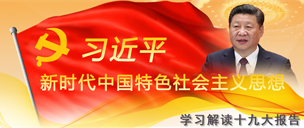
? 新征程 新任務 新前景 ?
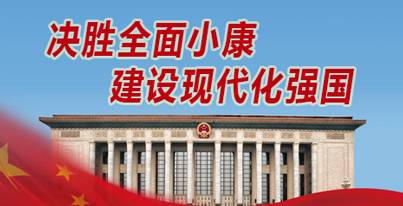
? 習近平治國理政 理論與實踐 ?
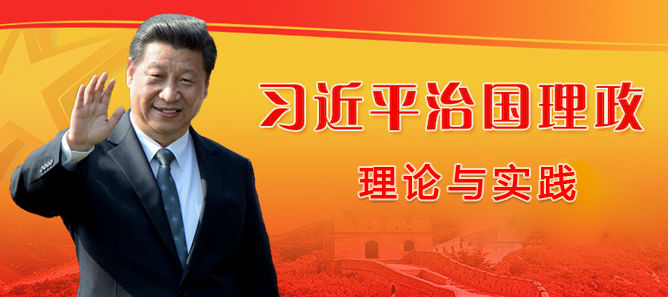
? 我為中國夢獻一策 ?
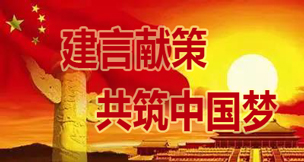
? 國資國企改革 ?

? 雄安新區建設 ?

? 黨要管黨 從嚴治黨 ?

圖片新聞























